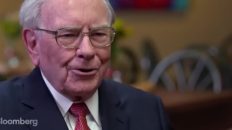Mentioned in Video:
- 🏆 Members-Only: VR is Changing the World & How Vection Technologies is Disrupting Design: https://www.youtube.com/watch?v=22IkBRMZHSk
- Facebook is planning to rebrand the company with a new name, Meta: https://www.theverge.com/2021/10/19/22735612/facebook-change-company-name-metaverse https://www.theverge.com/2021/10/28/22745234/facebook-new-name-meta-metaverse-zuckerberg-rebrand
- ARKInvest Big Ideas Report 2021: https://ark-invest.com/big-ideas-2021/
- Learn all about the Metaverse!: https://www.matthewball.vc/the-metaverse-primer
- Support the channel and get extra member-only benefits by joining us on Patreon: https://www.patreon.com/tickersymbolyou
🤯 #Facebook, now #Meta, recently announced that they're rebranding to focus on the #Metaverse. I want to cover #VirtualReality now because this area of tech stocks is filled with some of the best stocks to buy now. The metaverse was also featured in @ARK Invest‘s Big Ideas 2021 report. #ARKW, the #ARKInvest fund themed around the next generation of internet applications, is also filled with potential metaverse winners. This idea could make investing in Mark Zuckerberg's Facebook (Meta, FB stock) as good as Tesla stock, so don't sleep on this!
Video Transcript:
[00:00:00.250]
The world is changing. Thanks to advanced technologies, new innovations are being delivered faster than ever before. Self driving cars, flying robots, gene editing, blockchain technology. But there's one change that I think will dwarf the rest, and it may be coming faster than you think, maybe even faster than I think. I'm talking about the Metaverse, which will change humanity in a fundamental way, just like the smartphone did and the Internet before it and computers before that. We need to talk about this idea today because we can invest in this idea today.
[00:00:31.990]
So let me lay out the basic pieces: augmented reality, virtual reality simulations, virtual worlds, and the Metaverse, and show you a few great investments in each of those pieces. Your time is valuable, so let's get right into it. A few days ago, Facebook announced that they're planning to rename and rebrand the company around the Metaverse and that Mark Zuckerberg wants to be known for building it. Just to be clear, Mark Zuckerberg is the fifth richest person on Earth, and this idea is bigger than Elon Musk's reusable rockets and autonomous robotaxis, because rockets and robotaxis are bound by the laws of physics, at least for now,
[00:01:06.910]
while virtual reality has no such limits. So let's start with a quick clip of Mark Zuckerberg speaking about the parts of the Metaverse that excite him the most, from a recent interview he did with Marquez Brownlee right here on YouTube.
[00:01:20.050]
But our company is probably investing the most in virtual and augmented reality of anyone else in the world. I would hope that ten years from now or five years from now, people have a relatively sleek pair of goggles that they can put on and basically transport into your studio, where you are. And instead of just holding up the phone in front of you like you just did, they could grab it. Mayb e you can hand it to them and they can play with it and kind of experience that themselves.
[00:01:49.930]
Or maybe the lighterweight version of that would be augmented reality, which I think you're still going to have to go into some kind of different mode to want to put on sunglasses or goggles and have that fully immersive virtual experience for virtual reality. But I think augmented reality, once that hits and you have a normal pair of glasses, that good looking kind of normal glasses, not anything that's super thick or anything like that, and that can last all day long, but can project holograms into the world.
[00:02:21.190]
Then you'll be able to do a version of your show where your hologram can just show up on my couch right here and you can hand me the phone and I can kind of take the phone as a hologram and play with it like that. One kind of trippy thing that I think about that's further out is once we have really good mature AR glasses, we won't even necessarily need other kinds of screens anymore. Things like TVs, tablets. All these things could just be digital holograms.
[00:02:52.870]
It could be apps that some kid halfway across the world and some other place makes, and you'll be able to get completely new designs for things like TVs and kind of different kinds of shapes that are not like the regular thing that, you know Samsung can make in their factory. And I think that there's just going to be a crazy amount of creativity that gets unlocked and a lot of innovation when a lot of stuff that physically today has to be produced in a factory, which obviously most people don't have access to, doing that can just get turned into an app that can be a hologram that you can give to someone.
[00:03:25.210]
I think that that's going to be wild. So I'm really excited about and that's why we're just so focused on this. And we have thousands of people working on this at Facebook because I just do think that this is going to be the next major computing platform, even if it takes several years to get there.
[00:03:39.850]
So Facebook is dedicating thousands of people to virtual and augmented reality because they see it as the next frontier of computing and the Internet. That's huge. Here's another interesting tidbit. Facebook has their next earnings call on October 25, just a few days away from the time of this recording. On their previous earnings call, the word Metaverse was mentioned 20 times. For reference, the word advertising, which is Facebook's core business, was mentioned just twelve times. Let me know in the comments below if you have any guesses for Facebook's new name, I'm excited to hear your thoughts.
[00:04:13.570]
Sometimes I talk about ARK Invest. Oh, you've heard of them. Let's see if they have anything to say about the Metaverse. If we take a look at their last big Ideas report, the third big idea was virtual worlds. As ARK Invest points out on this cover page, these virtual worlds will ultimately come together as the Metaverse, where users can freely and instantaneously hop between worlds, including our own. According to their research, the total augmented reality market alone could scale from under $1 billion today to $130 billion by 2030, a compound annual growth rate of over 60% over the next decade.
[00:04:50.830]
Even if you think ARK Invest's projections are off by five years, that would still be an almost 40% compound annual growth rate for the next 15 years. Augmented reality is really about closing that gap between the Internet and the world around us by overlaying digital content and information onto our physical world. An easy example of augmented reality is being able to visually search for whatever you're looking at and having that information be displayed right next to the thing you searched. The companies working on augmented reality are all companies you've probably already heard of because surprise, surprise,
[00:05:25.390]
they're working on the software and hardware inside the devices that we use today. Google, ticker symbol GOOG has ARCore, which is the developer platform for bringing augmented reality experiences to apps on the Google ecosystem. Likewise, Apple, ticker symbol AAPL, recently launched the ARKit 4, which is the latest version of its open-source augmented reality development tools for apps on iOS devices. Market leaders like Google and Apple are investing heavily in augmented reality, encouraging widespread use of AR tools on existing mobile devices, as well as on AR glasses.
[00:06:02.530]
Snapchat, ticker symbol SNAP, makes the Spectacles, which are built to push the limits of consumer-grade immersive augmented reality experience, which basically means putting 3D objects like birds, hearts, and floating blobs over videos on Snapchat and off. Funny enough, about 10 seconds after I started recording this episode, Snapchat stock dropped by over 20% after their latest earnings call. How's that for good timing? And for professional applications, we have Vusix, Ticker Symbol VUZI, which is a company focused on building ready to use, hands-free display technologies that can help with everything from telemedicine to field inspections to manufacturing and logistics solutions.
[00:06:43.330]
Next, let's talk about virtual reality simulations. Unfortunately, when people think about virtual reality, they think about cheesy video games with lots of technical challenges. The pain points are obvious from the get go. Your hands are actually just handshake blocks. The graphics are not immersive at all, to say the least. And the virtual reality physics engines are nowhere near… er reality, or physics, for that matter. As an investor, none of that really makes me feel like we're on the cusp of the next computing revolution. The thing is, virtual reality and the Metaverse are about way more than just video games.
[00:07:18.490]
Here's a real state of the art surgeon simulator built by a company called Ghost Productions. Seriously, look at how immersive this is. It feels like you're watching a real surgery, and that's exactly the point, because this is a real surgeon simulator. The graphics, the controls, and the physics engine are all refined to the point where this would add real value to doctors, nurses and medical students, who can log in to a virtual operating room and lower the risk of real life operations by practicing them beforehand over and over. They can interact with different medical devices, try different ways to complete the procedure, and even bring the patient into this virtual operating room to answer any questions and make them feel at ease.
[00:07:58.630]
Virtual reality simulations have an infinite total addressable market because anything that can be done in real reality can also be reproduced in virtual reality, while the opposite is not true. Earlier this year, I had the privilege of interviewing Gabriele Sorrento, director at Vection Technologies, which is a publicly traded company on the Australian Stock Exchange under the ticker symbol VR1. Vection also believes that virtual reality can be used in almost every industry at almost every part of the value chain. They're building a two-way link between collaborative virtual worlds and specialized industry-specific software like CAD and SolidWorks.
[00:08:36.370]
Think about what this means. You no longer need to know CAD to interface with CAD, you can just manipulate a model in a virtual world, and the CAD model will update accordingly. A designer can focus on design instead of having to keep up to date with specific software packages, and that's just the tip of the iceberg. Multiple people can collaborate in a virtual workshop, handling a product without the product even having to exist and not having to be experts in that industry specific software, like SolidWorks, to make meaningful contributions to a very complex team-based model. In the future, teams may no longer need access to any expensive industrial software, certifications or training to bring their vision to life.
[00:09:18.850]
Think about doctors or architects or any professional being able to leave notes and comments right in the model to help instruct, train, or keep things moving asynchronously as people are working remotely around the world and log in at different times. That's the benefit of having our world go virtual. If you're interested in seeing my full interview with Vection Technologies, which includes a lot more use cases, consider supporting the channel as a patron on Patreon or channel member right here on YouTube. It's one of several full-length member exclusive videos, which is just one of the many extra benefits you get for supporting the channel.
[00:09:53.710]
And if you're already a supporter of Ticker Symbol: You, thank you. I'm really grateful. Speaking of Ticker Symbol: You, here are some other companies that I think are leaders in the virtual reality space. Unity Software, Ticker Symbol: U allows developers to create 2D and 3D interactive experiences for every type of platform, including PCs and Macs, gaming consoles and mobile devices. Their primary audience right now is video game developers, but they're extending their development ecosystem to support much more than just video games. Unity's solutions are very scalable, because they support everyone from huge studios that make multiplayer games requiring powerful computers, all the way down to individual creators who just want to make a simple mobile game.
[00:10:37.690]
Importantly, Unity Software's biggest competitor is Unreal Engine, which is owned by Epic Games, the company that makes Fortnite. Epic games and thus the Unreal Engine are not publicly traded. I think that's why Cathie Wood has over $1.5 billion invested in Unity Software, making it ARK Invest's fourth biggest position overall. Next, we have Nvidia, Ticker Symbol NVDA, which makes the Gforce line of graphics cards as well as tons of enterprise hardware and software for every type of artificial intelligence application you can imagine. They also build the Superpods, which are their commercially available supercomputers, specifically designed for artificial intelligence, as well as their DGX workstation, which is their server solution for data centers.
[00:11:22.270]
In my opinion, these machines or machines like them will run a serious portion of the Metaverse. Also, they happen to run on AMD processors, which is funny because, in my opinion, Advanced Micro Devices, Ticker Symbol AMD, is one of their biggest competitors. AMD makes the Radeon line of graphics cards, as well as some of the best central processing units or CPUs for consumer and enterprise applications. Another company I feel really belongs on this list is Amazon, for two reasons. First and foremost, Amazon Web Services powers around a third of the entire Internet today. Not just random stuff, either.
[00:11:59.770]
They offer an unmatched suite of tools that help companies build software that harnesses today's top technologies, including blockchain, VR, machine learning, augmented reality, and other technologies that are the building blocks of today's Internet and tomorrow's Metaverse. Second, people will shop in virtual reality just like they do in real reality. If you're skeptical of that, remember that nobody believed we would shop on the Internet when it was being built. In my opinion, there's no doubt that where there's shopping, there will be Amazon. Here are a few more investments that I think will be huge winners if and when the Metaverse comes to be. Roblox, ticker symbol RBLX, is an ecosystem of games and creations.
[00:12:40.750]
It's another world, entirely. In Roblox, every player is automatically given an avatar, which is a humanlike character that's consistent across the more than 40 million experiences on Roblox. EDC is a music festival held in Las Vegas since 2011, and hundreds of thousands of people attended each year. Well, guess what? It's this weekend, and by the time you watch this episode, Roblox will have launched what could be the world's largest music festival in partnership with EDC, called World Party. People who want to go to EDC in person but can't, can sign into Roblox's virtual version of it and tour a replica of the entire festival.
[00:13:19.570]
People who are on Roblox but don't have much interest in the festival are still encouraged to pop in, check it out, and collect some items that will persist on their character across the other Roblox experiences. Over 25 unique accessories can be acquired at this event to equip and express individual style, and just joining the World Party enters attendees to win real and virtual merchandise. As of Quarter 2, 2021, Roblox has over 40 million active users per day and can host events like this all the time.
[00:13:50.110]
Here's the problem. Roblox isn't the Metaverse any more than Amazon is the Internet. Roblox is a virtual world filled with experiences. Ironically, you don't need a virtual reality headset to log into a virtual world. The games on our computers, TVs and phones count as virtual worlds. That's why connecting them is such a big idea. Going back to ARK Invest's research, the revenue from virtual worlds could approach $400 billion by 2025. In fact, it was already close to $200 billion in 2020, in large part, due to video games.
[00:14:25.150]
You can imagine Disney coming out with its own virtual world like Roblox, but filled with great experiences from their own intellectual properties like Marvel and Star Wars. If they did that, you wouldn't be able to take your Roblox character into those experiences so you would have to log out of Roblox and into Disney to do it. They're separate, self-contained virtual worlds. I think Disney will be the single largest beneficiary of the Metaverse becoming real because the first parts of the Metaverse that people will want to explore, build up and get jobs in are the ones they've already been dreaming about, and Disney happens to own most of them.
[00:14:59.110]
All they would have to do is build up these worlds and connect them to the Metaverse's blockchain. And that's what I think Mark Zuckerberg wants to build: the infrastructure that would connect Roblox, Disney and any other company that wants to create these virtual experiences. Your avatar is you, or however you choose to customize the digital you and you can freely travel from Roblox's World Party to Disney's Death Star to your local virtual mall, and you'll have a persistent identity across the entire system. I'm sure I don't need to say this, but Facebook is one of the largest registries of people, organizations and the connections between them on the planet, which is also a serious asset when it comes to giving everyone a persistent identity in the Metaverse.
[00:15:40.870]
Facebook owns Oculus. Oculus makes the Oculus Rift, which requires a connection to a computer, as well as the Oculus Quest, which is a fully self-contained virtual reality headset. Facebook acquired Oculus back in 2014, and it's now called Facebook Technologies. This is where I assume many of the thousands of people that Mark Zuckerberg mentioned are working on the Metaverse. Facebook also builds and maintains important programming languages that help developers build things once and use them everywhere. When you log in to Facebook on an Android or an iPhone or a TV or a computer, you're actually logging in to the same Facebook, not different versions of it tied to different apps for different devices and ecosystems.
[00:16:21.190]
This idea of code wants access anywhere is key to a working Metaverse. Although people don't like it, facebook is also getting into cryptocurrency with their DM project, which used to be named Libra. Regardless, Facebook is working on blockchain-focused projects, and I really believe that blockchain technology will be key to tracking who owns what, where in the Metaverse and whether it's Facebook's or Ethereum or another blockchain entirely, that's the foundational technology. My point is that Facebook actually has a ton of tools that it would need to power all the different pieces of the Metaverse.
[00:16:56.350]
That's why it's one of my favorite megacap stocks to hold for the long term, as well as my number one pick for the Metaverse. Hopefully, this episode helped you understand a little more about augmented and virtual reality, simulations and virtual worlds, some of the great companies that are already working in this space today and this idea of the Metaverse that will connect them all together in the future, a lot like the Internet does today. If it did, let me know by investing in the like button and subscribing to the channel with all notifications turned on.
[00:17:27.130]
That way, you'll be the first to know when I come out with new episodes, regardless of what world you're watching from. This is Ticker Symbol: You. My name is Alex, reminding you that the best investment you can make is in you.
If you want to comment on this, please do so on the YouTube Video Here














